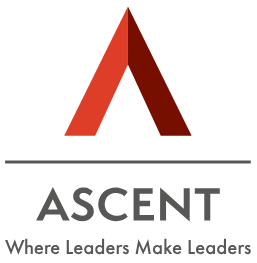Blog
Managing Your Ailing Parents’ Portfolio
~ Content Collaboration with Knowledge Partner – My Financial Advisor (MFA Consulting)
All of us have to face the challenge of looking after ailing parents as they age. Watching their health, visiting various medical professionals becomes a routine. This extracts your time, patience, emotions and also finances, especially if you are dealing with prolonged illnesses!
Usually parents’ monies are found lying in various savings account or invested in Fixed deposits, insurance, real estate, gold, PPF, bonds etc. Some who had the foresight, might have invested in stocks/mutual funds etc. Due to deteriorating health, key decisions on investments get neglected and cause more problems for these senior citizens, if not attended to on time. We experience many such instances of families trying to make sense of the papers accumulated over time, trying to figure out what to keep and what not to, where to stay invested in, whom to follow up with to recover loans given, etc….
Here is a checklist to spot the usual problem areas and also some action points that could help you manage your parents’ portfolio better:
- Check for money lying across various savings bank accounts drawing 4% pre-tax returns for years. Usually pension (invariably unutilised) keeps accumulating in these accounts. Check if a second account holder is present, and if not, ensure that least a nominee has been updated in the bank accounts. Move the money into long term investments other than what is needed for emergency. If possible, consolidate multiple bank accounts.
- Money lying in Fixed deposits give a post-tax return of 4%, that does not even beat inflation. Move this money to safe instruments like debt funds or tax-free bonds.
- Check for things kept inside Bank lockers. Also, identify empty lockers which continue to be charged an annual fee. Make a list of all the things kept in the locker – documents, gold, silver, artefacts, all jewellery and help parents identify whom they wish to gift these to after them or check if they wish to sell these.
- PPF accounts are renewed and usually forgotten about. Update pass book and withdraw these funds once they mature and move them into long term investments like mutual funds or stocks for the next generation, as decided with the parents.
- Unclaimed dividends keep accumulating where shares are not dematerialised and also not linked to bank accounts. Get a proper paper track of all physical shares, dividend warrants, dematerialise the stocks, update bank accounts for receiving e-dividends and reclaim unclaimed dividends, which could go into lakhs of rupees.
- Check all the Bond certificates that are yet to mature and dematerialise them. Check if insurance policies are about to mature or lapse or are already in a lapsed state. Check on Club associations /memberships and check if the children can be added to them.
- Study real estate documents and check for joint holding and nominations in all the documents and the share certificates. Check if you need to consolidate these real estates and if need be, help your parents sell some of them to move into cashable investments.
- Ensure that all the documents – whether physical or digital copy – are available for all bank accounts, fixed deposits, lockers, demat accounts, broking accounts, properties, jewellery, vehicles, insurance papers, art, personal effects, etc. Consolidate them in a file/ folder
- Help your parents make a Will, if not already made. This is one of the most important documents required, since this enables your parents to write down whom they wish to give their assets to, after their demise.
- For ailing parents, it may be necessary to get a Power of Attorney made for either parent. You may need to take the extra effort to ensure that the POA or WILL is made of their own free will and in a sound state of mind.
Becoming a parent to your parents is never easy, but you owe it to them to get things in order. Proper planning will give peace of mind, help avoid family conflict and minimize the financial impact on everyone involved.



